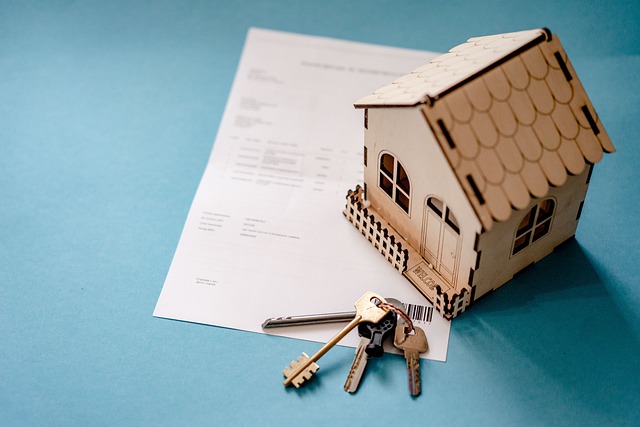The cost of Executive Condos (ECs) in Singapore has been influenced by a mix of economic conditions and government policy interventions over the past decades. From 2010 to now, EC prices have experienced growth, moderation, and subsequent growth, shaped by factors such as demographic shifts, economic health, interest rates, and government measures like loan-to-value ratios and Additional Buyer's Stamp Duty (ABSD). These policies, designed to maintain housing affordability and market stability, directly affect the purchase price and future resale value of ECs. The unique status of ECs as a middle ground between public and private housing has seen consistent appreciation in prices, with market projections suggesting further growth despite potential market fluctuations. Investors should monitor economic indicators, population trends, policy changes, and interest rate decisions to understand the complex factors that drive the cost of an Executive Condo in Singapore, making it a dynamic investment with a positive long-term outlook.
Over the past several decades, the cost of Executive Condos (ECs) in Singapore has been shaped by a myriad of factors, from market dynamics and economic indicators to government policies. This article delves into the historical pricing trends of ECs, offering readers a comprehensive overview of their trajectory from 2010 to the present. By analyzing these fluctuations, we aim to shed light on what influences EC pricing and how external forces have shaped the real estate landscape in Singapore. Additionally, we will explore the implications of government interventions on EC affordability and value appreciation, setting the stage for future projections regarding investment potential in this segment of the housing market. Understanding the cost of Executive Condos in Singapore is key to navigating this dynamic sector.
- Historical Overview of Executive Condo Pricing Trends in Singapore
- Factors Influencing the Cost of Executive Condos: Market Dynamics and Economic Indicators
- Analysis of Executive Condo Price Fluctuations from 2010 to Present
- The Impact of Government Policies on Executive Condo Affordability and Value Appreciation
- Future Projections for Executive Condo Prices in Singapore: What Investors Can Expect
Historical Overview of Executive Condo Pricing Trends in Singapore

Over the years, the pricing trends for Executive Condos (ECs) in Singapore have exhibited a dynamic pattern influenced by various economic and policy factors. Historically, the cost of an EC has been a reflection of the broader property market’s sentiment and conditions. In the early years, ECs were introduced as a housing option for couples where at least one of the partners is able to afford a resale flat, but cannot afford a private condominium. Since their inception in 1986, these flats have been a popular choice among middle-income families due to their affordable pricing and the benefits they offer, such as the ability to sublet to singles once the minimum occupation period has lapsed.
The cost of an Executive Condo in Singapore has seen fluctuations over time, often mirroring the overall property market’s direction. During periods of economic growth and low interest rates, EC prices have generally trended upwards, reflecting the increased demand for private housing. Conversely, during times of economic downturn or when cooling measures are tightened, the prices have experienced a softening effect. Notably, government policies such as the introduction of the Additional Buyer’s Stamp Duty (ABSD) for second-time property buyers have also impacted the pricing trajectory of ECs. This has led to a nuanced market where prices are not only influenced by economic cycles but also by policy shifts aimed at ensuring a stable and sustainable housing market in Singapore.
Factors Influencing the Cost of Executive Condos: Market Dynamics and Economic Indicators

The cost of an Executive Condominium (EC) in Singapore is influenced by a confluence of market dynamics and economic indicators that interact to shape housing prices over time. Market dynamics, including supply and demand, are pivotal in determining EC prices. New project launches, the completion of construction for existing projects, and the rate at which units are sold or resold can lead to fluctuations in pricing. The Singaporean government’s policies on land use, housing grants, and eligibility criteria for purchasing ECs also play a role in influencing the market. For instance, when new EC sites are released for tender, the competitive bidding process among developers can drive up costs as they factor in potential profit margins and expected demand.
Economic indicators such as interest rates, inflation rates, and the overall economic health of Singapore further impact the cost of living in an EC. A robust economy might lead to increased disposable income for first-time homebuyers, potentially driving up demand and prices. Conversely, during economic downturns, buyers may be more cautious, leading to a slower market and possibly downward pressure on pricing. Additionally, macroeconomic factors like global financial stability, currency strength, and regional property market trends can indirectly influence the cost of ECs by affecting investor sentiment and the availability of financing options. Prospective owners and investors should closely monitor these interrelated factors to gain insights into how they might affect the affordability and long-term value of an Executive Condo in Singapore.
Analysis of Executive Condo Price Fluctuations from 2010 to Present

From 2010 to the present, the cost of Executive Condos (ECs) in Singapore has exhibited a dynamic trend, influenced by various economic and policy factors. Initial data from 2010 showed a steady upward trajectory in EC prices, reflecting the burgeoning demand for such housing options among eligible couples, particularly first-time homeowners. This growth was partly fueled by favorable loan-to-value (LTV) ratios and subsidies available to Singaporean citizens.
However, the market dynamics began to shift as government cooling measures were introduced to ensure a stable and sustainable property market. These measures included tightening LTV limits and the introduction of Total Debt Servicing Ratios (TDSR). The impact was evident in the moderate slowdown observed in the price appreciation of ECs from 2013 onwards. Despite this, the cost of an Executive Condo in Singapore continued to rise over the years, albeit at a more gradual pace compared to the initial years following the global financial crisis. Analysis of historical prices indicates that factors such as population growth, interest rates, and changes in demographic trends have all contributed to the overall increase in EC prices up to the present. Understanding these fluctuations is crucial for both potential buyers and investors looking to navigate the Singapore property market effectively.
The Impact of Government Policies on Executive Condo Affordability and Value Appreciation

The cost of an Executive Condo (EC) in Singapore has been influenced significantly by government policies designed to manage housing affordability and stability within the country’s property market. These measures, which include varying loan-to-value ratios, cooling measures like Additional Buyer’s Stamp Duty (ABSD), and the minimum occupation period before an EC can be sold, have all played a role in shaping the affordability and value appreciation of these homes. The introduction of such policies has been a response to both economic conditions and demographic shifts, aiming to ensure that ECs remain accessible to middle-income families while preventing runaway property prices. As a result, potential buyers often consider these factors when assessing the long-term investment potential of an EC.
The impact of these policies on the cost trajectory of ECs has been multifaceted. For instance, tightening measures have occasionally led to a softening of prices, making ECs more attainable for first and second-time homebuyers. Conversely, easing of restrictions has historically been followed by periods of price appreciation. The government’s stance on housing remains dynamic, with policies adjusted in response to market sentiments and economic indicators. Prospective buyers looking at the cost of an EC in Singapore must stay informed about these fluctuations, as they can significantly influence both the purchase price and future resale value of the property. Understanding the interplay between government policy shifts and housing affordability is crucial for anyone interested in the EC market in Singapore.
Future Projections for Executive Condo Prices in Singapore: What Investors Can Expect

The cost of an Executive Condominium (EC) in Singapore has been a subject of keen interest among property investors, given its unique position between public and private housing. As of recent years, EC prices have shown a steady appreciation trajectory, influenced by factors such as population growth, economic stability, and government policies. Looking ahead, future projections for EC prices suggest a continued upward trend, albeit with potential fluctuations due to evolving market dynamics and broader economic conditions. Investors can anticipate that the cost of an EC will likely rise, reflecting the premium that buyers place on these properties for their size, location, and dual eligibility for public housing grants as well as mortgage loans. The balance between supply and demand will play a critical role in shaping price movements; new launches and the completion of ongoing projects will affect availability, while demographic shifts and immigration policies will influence demand.
Factors such as interest rate changes by the Monetary Authority of Singapore and the government’s housing policies will also impact the cost of Executive Condos. Investors should keep an eye on these indicators, as they can significantly alter purchase affordability and investment attractiveness. Additionally, the strategic location of ECs, particularly those in mature estates with amenities and connectivity, is likely to maintain their desirability, contributing to sustained price growth. As such, while precise predictions are challenging due to the dynamic nature of the market, a long-term positive outlook for EC prices in Singapore remains robust, making them an attractive investment opportunity for those looking to capitalize on the property market’s potential over time.
Over the years, the cost of Executive Condos (ECs) in Singapore has demonstrated a pattern of growth influenced by a myriad of factors including market dynamics and economic indicators. Historical data reveals a clear trajectory of price appreciation, as documented in the article’s analysis from 2010 to the present. Government policies have played a pivotal role in shaping EC affordability and value retention. As we look ahead, investors can anticipate continued growth in EC prices, albeit with potential fluctuations influenced by ongoing economic shifts and policy adjustments. The robust demand for quality living spaces and strategic location of these condos underscores their enduring appeal within the Singaporean property market.
